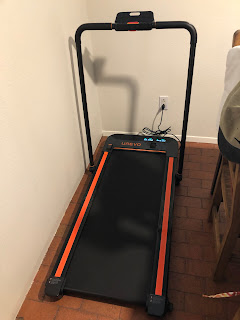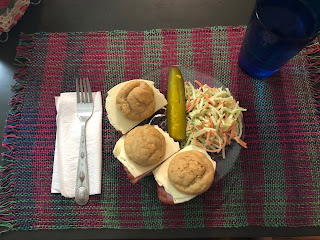Brace yourselves: Here comes that other Curmudgeon's Corner post I was mulling over a few weeks ago. I think the intervening days have mellowed me out a little, but we'll see.
Alert hearth/myth readers will recall that back in No-no-November, I was debating how much longer to carry on with this whole indie author thing. What I didn't share in that post was the grudge I was nursing against certain people in the business -- people for whom the whole point of publishing is to make money. Preferably a lot of money. Oh, some of them talk a good game about how we're all in this together so we should help each other succeed ("a rising tide lifts all boats") and so on. And they preach how you're in charge of deciding what success means to you. But it's pretty clear that they won't consider you successful until you're making enough money to join them at their exclusive get-togethers in exotic locations.
There I was, with a master's degree in fiction writing, ten years in the business, and some sales under my belt. Before that, I'd worked for TV and radio networks. I'd won awards for my writing. But I wasn't successful enough to join their exclusive club. And it rankled.
I sat with that feeling for a while. And eventually it dawned on me why it bugged me: It reminded me of Amway.
 |
| lightsource | Deposit Photos |
But I couldn't sell anyone else on joining me.
At one of the rallies, the speaker suggested that once you run out of family and friends to offer this great opportunity to, you should go to car shows and boat shows and RV shows, and approach people there who look like they're dreaming about how much they want one of those shiny new things, and persuade them to listen to your pitch about Amway. Because, the reasoning went, these people already had the desire for more money -- all you had to do is show them a way to get it.
I couldn't see myself approaching strangers like that, ever. Plus there was only so much toothpaste and laundry soap one person could use. And Amway's pantyhose was shitty -- it was expensive, and the toes would rip on the first wearing. (Our upline suggested that I file my toenails. Nice, huh? Never mind that I never had that problem with L'eggs.)
Anyway, eventually my "stinkin' thinkin'" won out. The relationship was on the skids anyway, so I told him I had to quit the business. Once I did, I never heard from my "best friends" in Parkersburg again. (Except for the wedding invitation he sent me later. I didn't go.)
To be clear: I am not suggesting that the folks selling the bestselling indie author lifestyle are running a pyramid scheme. But they are selling the same dream as Amway: wealth, independence, "being your own boss." Success. But only success on their terms, and they are very narrow terms based only on how much money you're making and not at all on how well you write.
My Amway sponsor's sponsor's sponsor told us he knew he'd made it when he could afford a Cadillac. I couldn't understand why anyone would want one.
No matter what anyone says about rising tides, all boats will never be lifted equally -- not in multilevel marketing and not in the indie author business. These guys are selling the myth of the American dream. What really rankles is that I fell for it again.
***
These moments of insightful blogginess have been brought to you, as a public service, by Lynne Cantwell. Get vaxxed!




